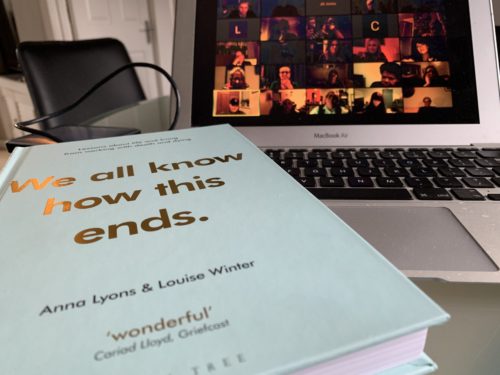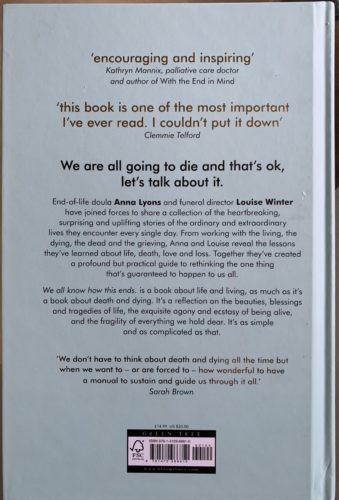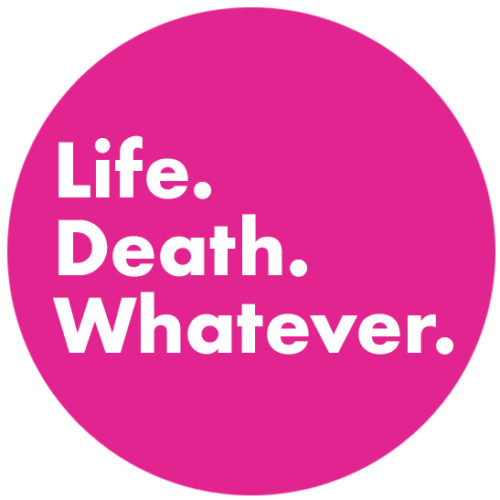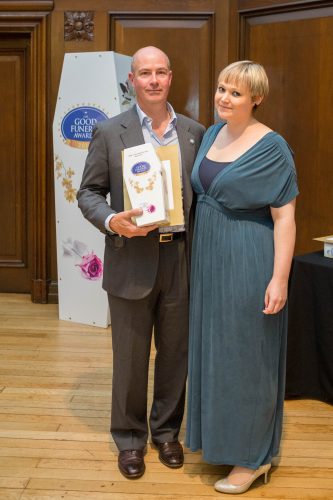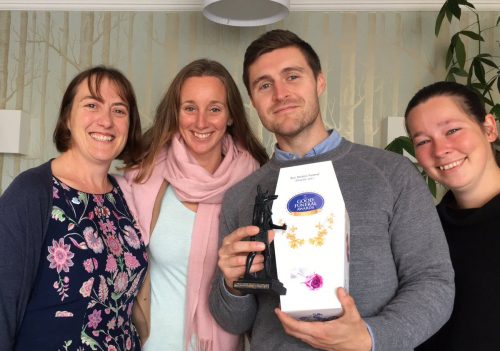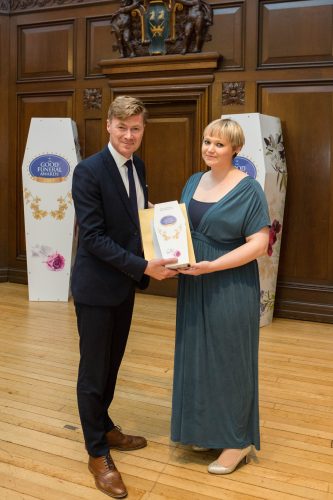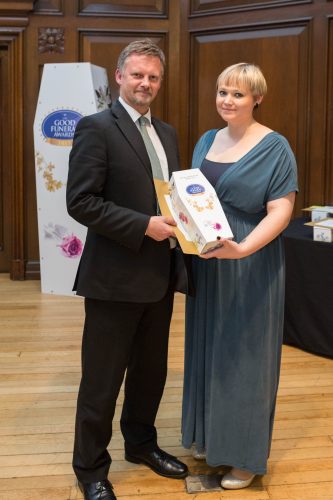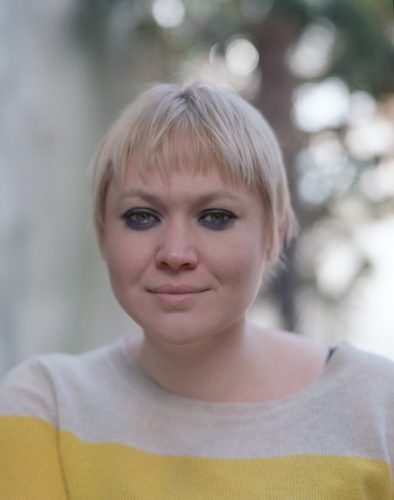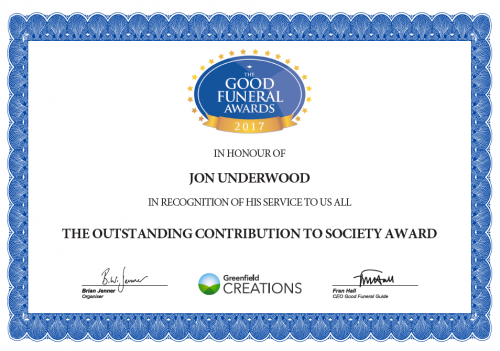
The former editor of the GFG, Louise Winter, brought the packed room at Porchester Hall to their feet at the close of the 2017 Good Funeral Awards with a powerful emotional tribute to the late Jon Underwood.
Everyone present joined in a standing ovation in recognition of Jon’s pioneering work in starting the Death Cafe movement, and in honour of the memory of an unassuming, gentle man who was an example to us all.
Jon’s sister, Jools Barsky, bravely took to the stage to accept the award for Outstanding Contribution to Society on Jon’s behalf in an emotional ending to this year’s honours list.
In response to a number of requests, we are proud to share Louise’s words with you below.
“On Tuesday 27th June, Jon Underwood did not pass away; he died – that difference in wording is an important distinction that Jon would have wanted us all to make; his work with Death Cafe helped to reclaim the words death and dying and placed importance on us all being unafraid of using the actual words and not speaking in euphemisms.
Jon brought together tens of thousands of people who began to talk openly and honestly about one of life’s toughest subjects, over tea and cake.
Since the first Death Cafe was held in Jon’s front room in Hackney in 2011, there have been over 5000 Death Cafes in over 50 countries. Death Cafe has received unprecedented press coverage including the front page of the New York Times, Woman’s Hour, BBC Breakfast News and pretty much every other major news outlet around the world.
Jon also painstakingly built and managed Funeral Advisor in association with the Natural Death Centre Charity and worked on many projects for Dying Matters.
My colleagues in the death and dying profession, including so many of the people in this room, have been devastated by Jon’s untimely death. We are honoured that we were able to call him both a colleague and a friend.
In the beautiful setting of the Jamyang Buddhist Centre and with the generosity and creativity of some of the
people in this room today – including Hasina, Allistair and Sarah from Compassionate Funerals, the team at Ecoffins, Andrew and Steve from Brahm’s Electric Hearse and the members of the Good Funeral Guild who carried Jon’s coffin, Jon’s funeral ceremony took place on Thursday 6th July. It had been Jon’s dream to hold
funerals at the centre and with an irony he would have relished, his was the first.
A perfect reflection of Jon, his funeral was brave, pioneering and groundbreaking.
Jon was a source of invaluable advice, support and encouragement to everyone in the fields of death and dying, always generous with himself and his resources. He was one of the good guys – the most genuine, well intentioned, humble, kind hearted and gentle person, both professionally and personally.
He was a mix of quiet determination, loving kindness, extreme modesty and belief in the importance of the work he was doing as a self-confessed death activist. His commitment to making the world a better place
through his work was unwavering.
Since 2011, Jon funded Death Cafe entirely through his own personal savings and small freelance
projects. He had recently begun trying to fundraise so he could pay his bills and support his family.
As a community, we wanted to support Jon’s young children, Frank and Gina, and set up a JustGiving page
in his memory. We’ll be auctioning the infamous gold cake at the end of today’s awards ceremony, and all
proceeds will go directly to Jon’s family.
So in Jon’s own words: “I’m motivated to do this work because I believe that engaging with death is both important and overlooked. My experience tells me that death can play a role in helping us enjoy life. I also believe that focusing on death can play a part in helping us get to grips with some big challenges – like supporting older people, climate change, a broken economic system and chronic global inequality. This may not
immediately make sense but if we can face up to death we can face up to anything. I am very proud of
my work – I don’t think there has ever been anything quite like it!”
On behalf of everyone here today, the wider death and dying community and Death Cafe hosts and
attendees all over the world, I’d like to ask Jon’s sister Jools Barsky to collect an award in Jon’s honour – the Good Funeral Award for Outstanding Service to Society.”
